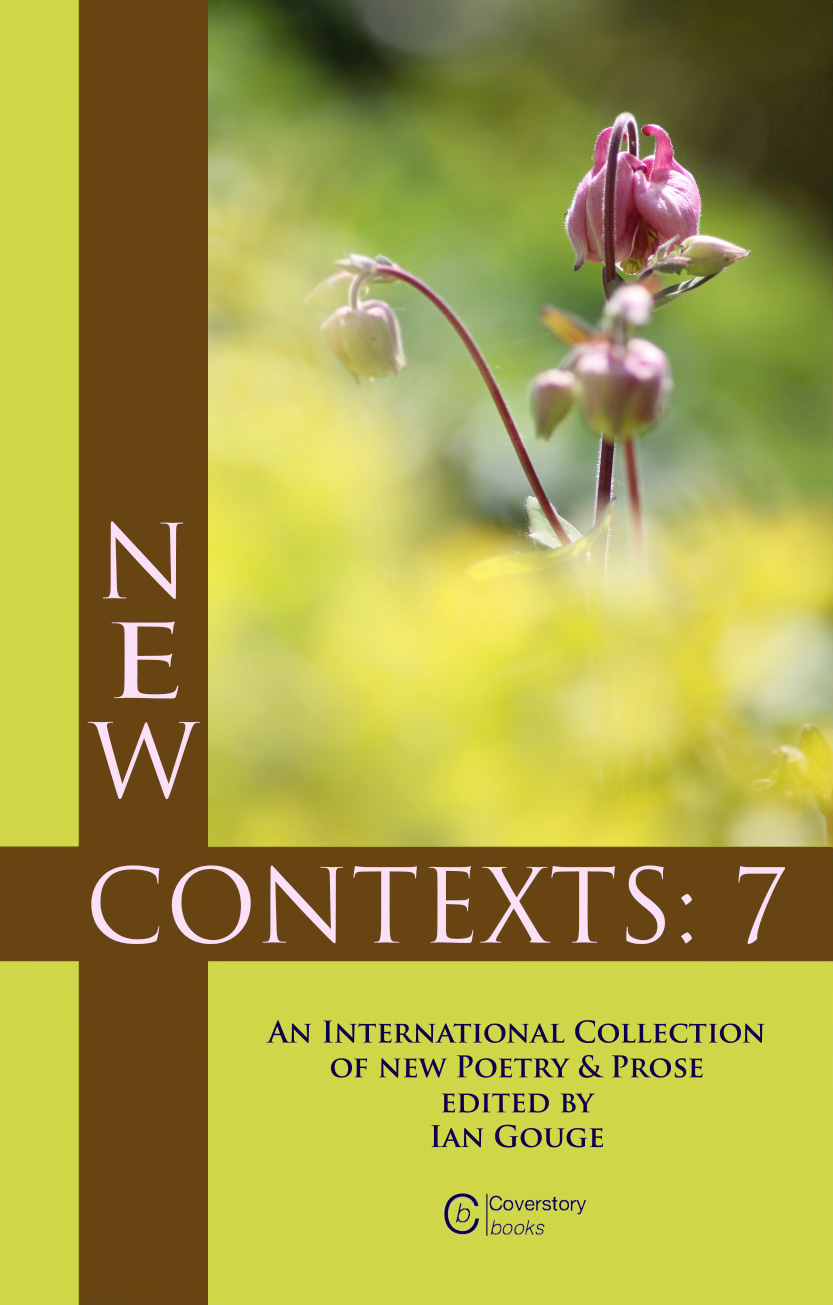I am mid-way through the process of selecting the prose and poetry that will go to make up the seventh edition of the New Contexts anthology.
Choosing what to include — and therefore what to exclude — is a ticklish business, and the endeavour usually prompts me to think “Never again!”; though it seems I’ve thought that same thing multiple times already…!
The experience of editing an established anthology such as New Contexts is, in the most clichéd sense, full of ups and downs...
The Lows & the Challenges
The worry about the number of submissions.
The angst begins well before the selection process starts. “Will I get enough submissions?” “What will I do if I don’t?” In the past I’ve mainly used Submittable as the submission platform, but it is very expensive to run for just a couple of anthologies per year. This time around I abandoned Submittable — which only served in increase the fear! — and relied on my various distribution lists, contacts and websites (including Substack!), the National Poetry Library competitions page, and a late trial-listing on Duosuma.
Concern over the quality of those submissions.
Okay, so I may get a decent volume of submissions, but what if too many of them are not of a standard suitable for inclusion in the anthology, or the subject matter is ‘dubious’? The dilemma here is to decide either a) to go for a ‘thinner’ book, or b) to re-open submissions.
Having said that, based on where I am right now, for New Contexts: 7 I think I’m ok!
Not selecting work submitted by people I know.
This is perhaps the hardest challenge. Not choosing to include the work of people I know feels a little like betrayal, and so there’s an extra degree of pressure there. And if I’ve published them before, are some perhaps expecting to be included? All I can do is try and be as objective and dispassionate as possible — but it isn’t easy!
Mind you, excluding anyone is painful. I know all too well how invested we writers are in our work, and being ‘rejected’ can be excruciating. Poacher turned gamekeeper perhaps — but it’s not comfortable!
Being prepared to include pieces not in my preferred ‘style’.
As with any of us, there are things I like and things I don’t'; however, I have always wanted New Contexts to represent ‘good writing’ rather than merely echo what I personally prefer. This means I need to be mindful to try and include work based on merit rather than solely on preference. Historically this has meant that there will be pieces in the book that aren’t entirely to my taste, but which are there because I believe they are well-written and deserve to be read. In order to arrive at this happy place I need to trust my process:
read every piece; for each one -
move to ‘shortlist’ if I know I’m going to include it;
move to ‘rejected’ if I know I’m not;
put the rest into ‘longlist’
once I have been through every piece (poetry first, followed by prose) and have a burgeoning sense of the ‘balance’ thus far, I then revisit everything in ‘longlist’ to make the binary in/out decision.
During the first sweep about 20% make the shortlist, 35% the longlist, and 45% are rejected.
The Highs & the Rewards
Putting the anthology together.
I get a real kick out of putting the draft together. This is always both fun and frustrating, however. The frustration comes from copying submitted work into the final document where the original is filled with unnecessary spaces, hidden characters, poor or inconsistent formatting etc. It’s amazing how many writers aren’t that proficient in using Word… (And Word’s not my WP of choice, by the way.)
Occasionally I’ll suggest minor edits. Another double-edged sword. Hopefully doing so makes the work better (the good part), but it’s an activity laced with trepidation i.e. the wondering what right I have to do so… But isn’t that the job of an editor? That’s what I tell myself.
Getting that proof copy.
Once the draft is prepared, I submit it to the printer for validation. Once validated, I then order the physical proof copy. It’s always rewarding the day that arrives for checking!
Sending out copies to contributors.
Then perhaps the best of all: sending copies out to the contributors. I still remember the first time I saw my work in a physical book. It’s a wonderful thing. And whilst many of those who will be included in New Contexts:7 have been published before, surely nothing is ever taken away from that feeling of seeing your words on a page. It’s great knowing I’ll be helping people feel that — perhaps some for the first time.
And no mention of money? The money’s almost irrelevant. I cover my costs, maybe make a few pounds, but that’s it. If the goal was to make the project financially rewarding then I simply wouldn’t do it…
So will New Contexts: 7 be my last? Come April I’ll probably be thinking ‘yes’ — but then ask me again in the autumn…





